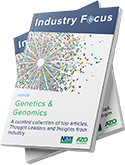Study reveals limited effects of longevity treatments on the aging process
Three methods that were thought to delay the ageing process have mainly failed. Researchers created a brand-new ageing measurement technique for their study that takes the complexity of organism ageing into consideration.
In a recent study, scientists closely examined three therapeutic modalities that have long been thought to delay the ageing process. However, these medicines' purported effects on ageing were generally ineffectual when tested on mice.
At least not in the manner of the treatments investigated here, there is no internal clock of ageing that you can alter with a simple switch.
Dr. Dan Ehninger of the DZNE is the author of the study.
To make impacts on ageing processes quantifiable, the team has created a novel analytical methodology.
Researchers from DZNE,
Researchers from DZNE, Helmholtz Munich, and the German Center for Diabetes participated in the research, the findings of which have now been published in the prestigious journal Nature Communications (DZD). Prof. Dr Martin Hrab de Angelis, head of the Institute of Experimental Genetics and director of the German Mouse Clinic at Helmholtz Munich, who also oversaw the experiment with his team, notes that "we picked three regulators for our manipulations that many experts think to slow down ageing." Intermittent fasting, in which fewer calories are taken, is one of them. The second one targets mTOR, a major node of cell metabolism that is also the target of rapamycin, a purported "anti-ageing medication." The release of growth hormone is then hampered by number three. Humans also employ similar therapies, albeit their effectiveness in combating ageing has not been thoroughly established.
The researchers came up with a novel method to quantify ageing for the evaluation in mice.
Dan Ehninger, a senior scientist at DZNE, says that "many studies have utilised longevity as an indirect indicator of ageing in recent decades."
What is the average lifetime of mice, for instance, and how may it be increased?
"It's common to believe that if someone lives longer, they will age more slowly. However, the issue is that mice, like many other creatures, do not perish from general ageing but rather from highly particular illnesses, "Ehninger argues.
For instance, tumours that develop in the body of old mice cause up to 90% of them to die. Therefore, numerous genes that prevent tumour formation would likely be found if the entire genome were examined for variables that cause mice to live a long life, rather than genes that are often associated with ageing.
Therefore, the researchers' method for their study concentrated on a thorough evaluation of age-related changes in a variety of biological processes rather than one that emphasises longevity.
According to Martin Hrab de Angelis, "the health check results in a compendium of hundreds of elements encompassing many areas of physiology" -
An accurate description of the state of the animal at the time of inspection. He continues, "You may think of it as a comprehensive health status evaluation." Who is precisely the method the researchers used on the animals that were given one of the three therapy methods that are meant to delay ageing?
They were evaluated and compared across different life stages: How much does each metric generally vary at a given period of life? Do the mice receiving one of the three treatments experience slower parameter changes? With the use of this study design, it is conceivable to pinpoint if it is possible to slow down natural ageing and, therefore, the decline of critical physiological processes.
Genetics & Genomics eBook

The findings were clear: Despite being able to pinpoint specific instances in which aged mice appeared younger than they actually were, it was evident that "this impact was not due to slowing down ageing, but rather due to age-independent variables," according to Dan Ehninger. A treatment's effectiveness in young mice, which occurs before age-dependent changes in health markers, "proves that these are compensatory, general health-promoting benefits, not a targeting of ageing mechanisms," according to the study.
The next objective for the DZNE and Helmholtz Diabetes Center teams is to look into additional therapeutic modalities that scientists think can reduce ageing. The new study strategy should offer a more thorough picture of potential therapeutic strategies and their efficacy, the researchers say.
German Center for Neurodegenerative Diseases (DZNE)
Deep phenotyping and lifespan trajectories suggest minimal impacts of longevity regulators on the ageing process in C57BL/6J mice, according to Xie, K., et al. (2022). https://doi.org/10.1038/s41467-022-34515-y. Nature Communications.
Posted in: Cell Biology | Genomics
